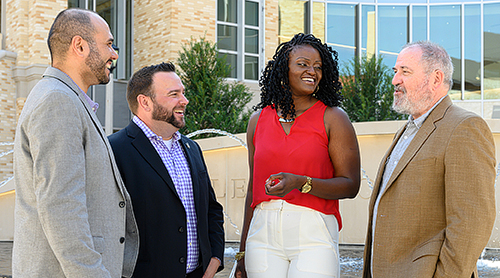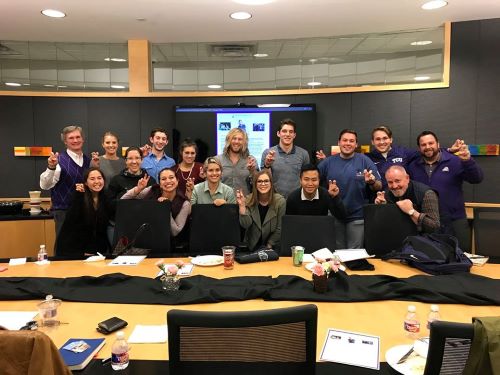Idea Factory is a central hub where entrepreneurial mindset, human-centered design and social innovation all come together to spark world-changing ideas at TCU. Students create realistic solutions for complex challenges while learning how those solutions impact society – presenting their ideas in competitions and showcase-style events to receive feedback, guidance and even seed money.
Opportunities
Side Hustle Showcase
This showcase is a chance for students to present “side hustle” style entrepreneurship ideas – from baking cookies to producing videos or assisting the elderly – to receive feedback from entrepreneurial professionals and even to win seed money. The supportive environment empowers students to share their passions, build confidence and foster connections within our campus community. The showcase centers around trifold board displays and takes place each spring.
Social Impact Design Challenge
Each April, this annual competition invites students to develop ideas for innovative ventures that make a meaningful difference in people’s lives. Looking through the lens of social entrepreneurship, students compete for cash prizes while gaining practical insights into design thinking and how to leverage data to show a clear link between their business and its impact on society.
Pitch Your Passion
This more relaxed weekly event allows students to share business ideas at their earliest stages, taking advantage of immediate feedback from peers and mentors. Open to all TCU students who have a passion for innovation, this event fosters creativity and collaboration, offering a space to refine ideas and connect with like-minded individuals.







